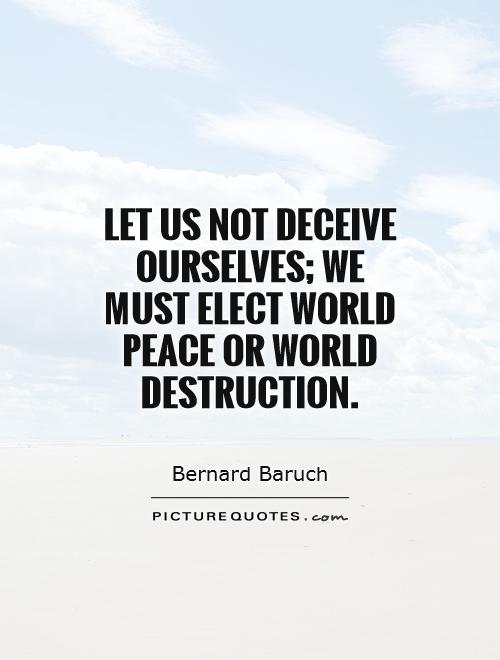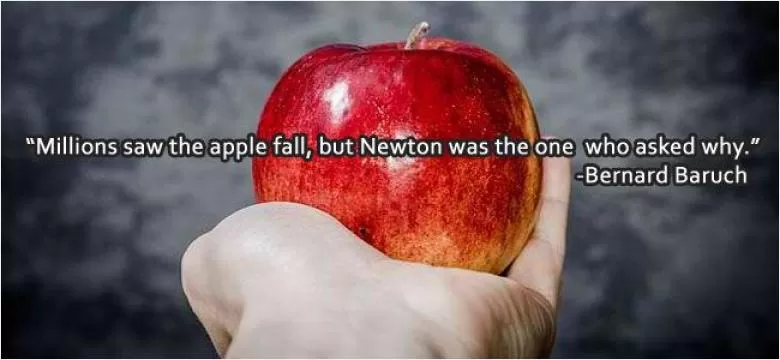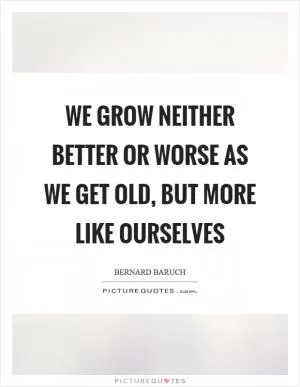Let us not deceive ourselves; we must elect world peace or world destruction

Let us not deceive ourselves; we must elect world peace or world destruction
Bernard Baruch, a prominent American financier and statesman, once famously said, “Let us not deceive ourselves; we must elect world peace or world destruction.” These words hold a profound truth that resonates even more strongly in today’s world, where conflicts and tensions seem to be ever-present on the global stage.Baruch’s words serve as a stark reminder of the consequences of failing to prioritize peace and diplomacy in international relations. In a world where nuclear weapons are a reality and where countries are constantly engaged in power struggles and territorial disputes, the stakes are higher than ever. The choice between world peace and world destruction is not just a matter of preference; it is a matter of survival.
The consequences of choosing world destruction are too dire to even contemplate. The devastation and loss of life that would result from a global conflict would be catastrophic, with long-lasting effects that would reverberate for generations to come. The very existence of humanity would be at risk, as the destructive power of modern weapons is unparalleled in history.
On the other hand, the choice of world peace offers a glimmer of hope for a better future. By prioritizing diplomacy, cooperation, and conflict resolution, nations can work together to address common challenges such as climate change, poverty, and terrorism. Through dialogue and negotiation, it is possible to find peaceful solutions to even the most entrenched conflicts.
However, achieving world peace is not an easy task. It requires a collective effort from all nations, as well as a commitment to upholding international law and respecting the sovereignty of other countries. It also requires a willingness to set aside differences and work towards common goals for the greater good of humanity.












 Friendship Quotes
Friendship Quotes Love Quotes
Love Quotes Life Quotes
Life Quotes Funny Quotes
Funny Quotes Motivational Quotes
Motivational Quotes Inspirational Quotes
Inspirational Quotes